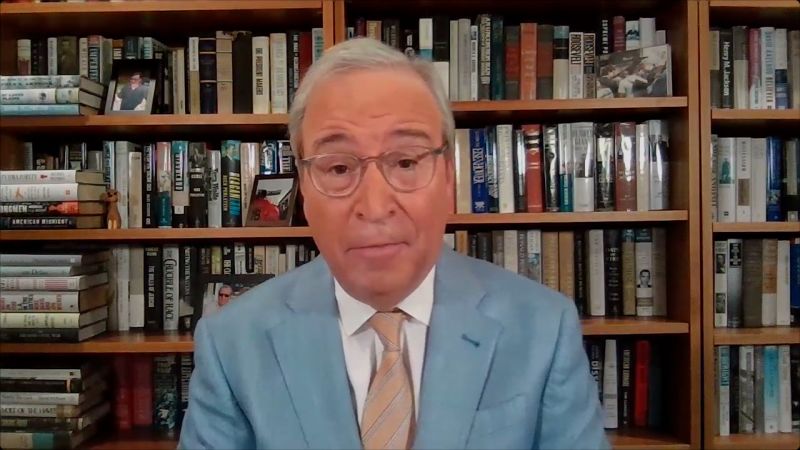In a recent analysis, CNN Senior Political Analyst Ronald Brownstein examines the potential implications of Robert F. Kennedy Jr.’s endorsement of former President Donald Trump. Brownstein suggests that Kennedy’s endorsement could prove to be more of a problem than an asset for Trump’s political standing. Kennedy is a member of the prominent Kennedy family and has drawn controversy for his anti-vaccine activism and promotion of conspiracy theories. Brownstein argues that while Kennedy’s endorsement may appeal to some segments of the population, it could also alienate moderate and independent voters who see his views as extreme and divisive. This could potentially harm Trump’s efforts to broaden his base of support and appeal to a diverse range of voters.
Kennedy’s endorsement of Trump is significant given his status as a member of the Kennedy family, a prominent political dynasty with a long history of influence and leadership in American politics. However, Brownstein notes that Kennedy’s views and activism have been controversial and have drawn criticism from public health experts and mainstream political figures. Kennedy has been a vocal opponent of mandatory vaccination programs and has promoted debunked conspiracy theories linking vaccines to autism. Brownstein argues that Kennedy’s endorsement could be seen as a liability for Trump, as it may reinforce negative perceptions of Trump’s handling of public health issues and his willingness to align himself with fringe or extremist figures.
One of the key concerns raised by Brownstein is the potential impact of Kennedy’s endorsement on Trump’s efforts to appeal to moderate and independent voters. Brownstein suggests that Kennedy’s views on vaccines and other controversial issues may alienate these voters, who could see his endorsement as a signal that Trump is out of touch with mainstream scientific consensus and public opinion. This could pose a challenge for Trump as he seeks to broaden his base of support and win over swing voters in future elections. Brownstein argues that Trump may need to distance himself from Kennedy’s extreme views in order to avoid being associated with them and to maintain credibility with a wider range of voters.
Another issue raised by Brownstein is the broader implications of Kennedy’s endorsement for the Republican Party and the conservative movement. Kennedy’s views on vaccines and conspiracy theories are not widely shared among mainstream Republicans, and his endorsement of Trump could further polarize the party and undermine efforts to present a united front to voters. Brownstein suggests that Trump may need to carefully calibrate his response to Kennedy’s endorsement in order to avoid alienating key constituencies within the party and damaging his own political prospects. This could prove to be a delicate balancing act for Trump as he navigates the complex political landscape of the post-Trump era.
Overall, Brownstein’s analysis suggests that Kennedy’s endorsement of Trump may be more of a liability than an asset for the former president. While Kennedy’s status as a member of the Kennedy family may lend some credibility to his endorsement, his controversial views on vaccines and conspiracy theories could prove divisive and alienate key voter groups. Brownstein argues that Trump may need to carefully manage his association with Kennedy in order to avoid being tarnished by association and to maintain credibility with a wider range of voters. The implications of Kennedy’s endorsement could have far-reaching consequences for Trump, the Republican Party, and the conservative movement as they seek to navigate the political challenges of the post-Trump era. It remains to be seen how Trump will respond to Kennedy’s endorsement and how it will shape his political future in the months and years ahead.













